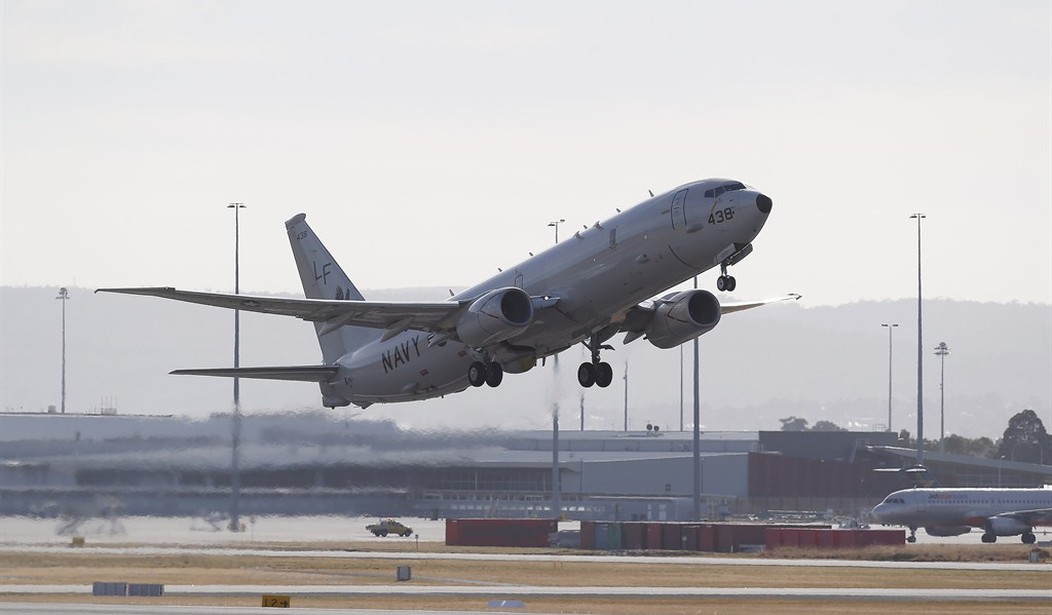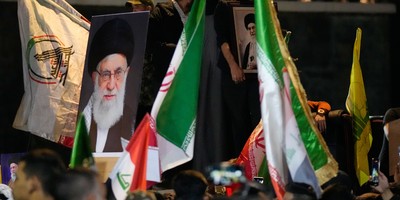The P-8 Poseidon — named for the mythological Greek Olympian who presided over the sea — is the Navy’s high-tech wartime patrol and reconnaissance aircraft. It is popularly known as the world’s most capable and effective submarine hunter. But that’s only a small part of what it can do. It is a highly capable and unbelievably versatile aircraft.
As the world’s most capable anti-submarine platform, it can deploy and monitor high-tech buoys that listen for and track nearly silent submarines and is also armed with torpedos to destroy them.
The P-8 is also a highly effective anti-surface warfare weapon and is armed with high-tech Harpoon anti-ship missiles. It can defend aircraft carriers and other naval assets long before the enemy is in range to harm our naval ships. And it can destroy enemy ships from long range.
The P-8 is also an advanced intelligence, surveillance and reconnaissance platform. It has a wide array of high-tech radars, sonars, and sensors that make it an incredible intelligence and reconnaissance asset. Most of the crew inside the P-8 are monitoring computers and data readouts from all the various sensors and radars. In some regards, it looks like a high-tech flying computer lab. But, of course, it is so much more.
The P-8 doesn’t stop there, it is a highly effective sea search and rescue platform as well. In fact, some of our allies use the P-8 predominately for its search and rescue capabilities.
The P-8 is so effective and versatile that many of our allies have added it or are adding it to their military toolsets. The United Kingdom, India, Australia, Norway, New Zealand, South Korea, and Germany all see the P-8 as a versatile and powerful maritime and reconnaissance aircraft. Several of our other allies are in the early phases of obtaining the P-8 for exactly the same reason.
Recommended
The P-8 is based upon the Boeing 737-800, but it is built from the ground up as a P-8, not a passenger plane. It is not simply a refurbished or modified 737 that we are all familiar with as the world’s most popular passenger airplane. The most obvious difference is that there is not a long line of windows on either side of the fuselage. But things you might not notice with the naked eye include: the P-8 is built with a much thicker aluminum skin, a stronger fuselage, and a substantially larger wing profile to support the lift requirements of the P-8. And due to its power demands to power all the computers, electronics, radars and sensors, it has a much larger generator than the passenger plane.
One of the reasons the P-8 is so effective is because former Navy pilots who flew and operated the P-8’s predecessor, the P-3, are included on the development team and production teams. When you include people who have practical experience on how to improve the platform, not surprisingly, you get a platform that is designed from the ground up by experts who know exactly what is needed to get the job done.
Former P-3 pilots told me that the P-8 is substantially smoother in flight and subjects the crew to far less turbulence, noise, and fumes. This change is not merely about crew comfort. It contributes to the crew’s ability to do their jobs where concentration and detail matter. When you’re on a mission that can last more than 24 hours, it is helpful to not be fatigued by turbulence, noise, and fumes and to have a more stable work environment.
The P-8 has a wide array of high-tech sensors and electronics that make it capable of reliable reconnaissance and that help keep it safe from enemy fire. Since the first P-8s came on line in 2012, upgrades have made it even more capable and more survivable.
In a world where our adversaries are upping their submarine and surface navy capabilities, the P-8’s importance is only increasing. Were it not for the P-8, enemy subs could threaten America without detection. But with the P-8, we have the ability to track enemy subs with great precision and even destroy them if necessary. But the P-8 can also track and attack enemy warships. And even when it isn’t destroying enemy subs or warships, it is one of our top reconnaissance platforms.
The P-8 was built and designed to work in cooperation with our other intelligence sources. The level of communication and interconnectedness with data from other platforms compliments and leverages the P-8’s capabilities.
While the P-8 can fly for an impressive 10 hours without refueling, it can be refueled in flight by the KC-46 Tanker which means that it can stay on site and on target as long as the crew can last at which point a new plane and crew will take over. But that extended range and time on target only augments the P-8’s effectiveness.
From a taxpayer perspective, the P-8 has been a tremendous success — coming in on time and under budget.
As China has been expanding its Navy, we should consider expanding our defensive capabilities. The P-8 is one of the premier platforms to defend against foreign navies. And as capable as it is, it is constantly being upgraded to keep it ahead of the curve in defending America.
























Join the conversation as a VIP Member